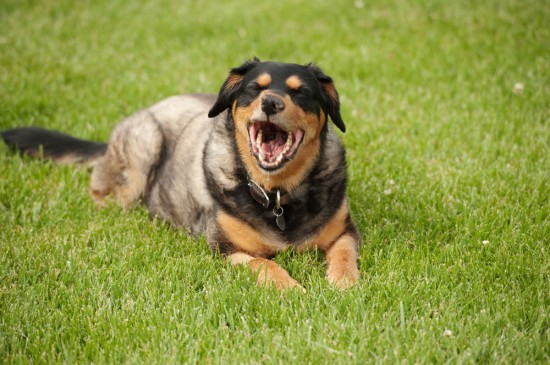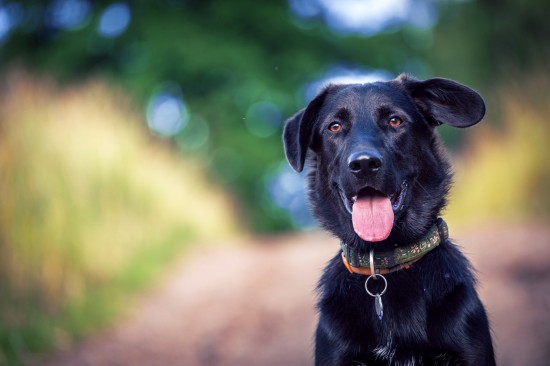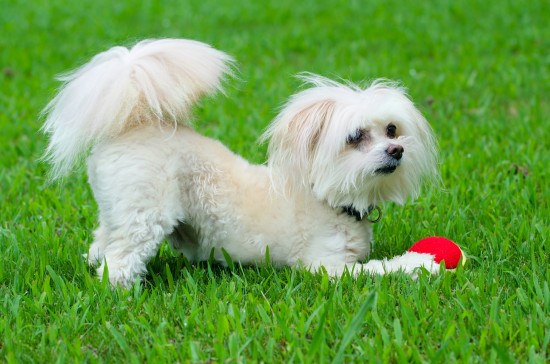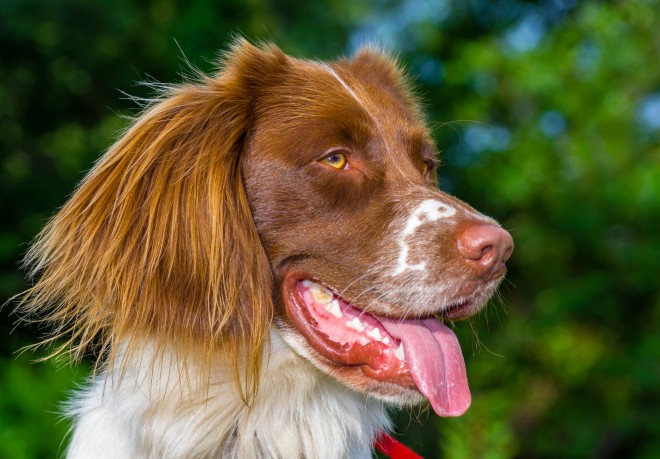
Aside from being known for its large size and strength, the Newfoundland is also known for its sweet and calm disposition thus the moniker "gentle giant". This breed is protective of and devoted to its owner and also known for being exceptionally good with children. Because of that, with addition of Wendy's own pet Nana (Peter Pan), the Newfoundland is becoming popular not only as household pet but also as water rescue dogs. Indeed, this breed has remarkable temperament and natural tendency to save lives but despite that, Newfoundland training is still necessary for them to become healthy, happy and obedient.
Most dog breeds are intelligent on their own ways however, training can be challenging especially if unexpected problems occur. In order to get desirable training results, it is important to learn more about the breed facts first before implementing any training technique.
Size.
This working breed can weigh up to 70 kilograms thus can potentially knock down a small kid when leaned on. To prevent any accident such as this, Newfoundland dogs must be properly socialized and trained with basic commands such as sit, down, come and stay. Activities that encourage pulling, biting and chasing should be avoided as well to prevent accidents.
Barking.
Newfoundlands rarely bark and when they do, they exhibit that deep bark similar with other large dog breeds. Knowing this, you need to make sure that your pet will not acquire the habit of barking excessively else you'll have to put up with the noise it will cause. To control your pet's barking, you have to train it with commands such as "quiet" or "no barking". These commands can be used if your pet is barking without reason at all.
Love for water.
Like Labrador Retrievers, Newfoundlands have webbed-feet and water resistant coat. They love to swim and many of them have already rescued people from the water even without proper Newfoundland training in water rescue. If training a particular command for the first-time, the training location should be away from the water in order to avoid distraction and get him to focus on the training.
Exercise.
This breed may not be as highly energetic as Border Collie or Jack Russell Terrier but they do need exercise too. They must be taken on a daily walk however, they need to be trained to heel and not to pull on the leash since a dog as big as the Newfoundland can be difficult to handle if they have the habit of pulling on the leash when walking.
Alison Martin has been providing Newfoundland training to her dog Ringo. The techniques she is using when training are shared to her site specially dedicated to Newfoundland training and care.
 How To Create A Lovely Environment For Sugar Gliders
How To Create A Lovely Environment For Sugar Gliders
 Seven Interesting Facts About Tortoiseshell And Calico Cats
Seven Interesting Facts About Tortoiseshell And Calico Cats
 Why Is My Dog Coughing ? Ten Potential Reasons
Why Is My Dog Coughing ? Ten Potential Reasons
 How Can You Tell If Your Dog Respects You?
How Can You Tell If Your Dog Respects You?
 Hire Professional Pet Grooming Manitoba for Special Treatments
Hire Professional Pet Grooming Manitoba for Special Treatments
 The Maltipoo - A Cute Hybrid Dog !
The Maltipoo - A Cute Hybrid Dog !
 Hypertrophic Cardiomyopathy In Cats Explained
Hypertrophic Card
Hypertrophic Cardiomyopathy In Cats Explained
Hypertrophic Card
 A Guide to Select the Best Vet for Your Adorable Pets
A Guide to Select the Best Vet for Your Adorable Pets
A Guide to Select the Best Vet for Your Adorable Pets
A Guide to Select the Best Vet for Your Adorable Pets
 Dachshunds And Disc Disease
Dachshunds And Di
Dachshunds And Disc Disease
Dachshunds And Di
 How To Keep A Welsh Corgis Coat Looking Good
How To Keep A Wel
How To Keep A Welsh Corgis Coat Looking Good
How To Keep A Wel
 Which Breed Of Spaniel Would Suit Your Lifestyle Best
Which Breed Of Sp
Which Breed Of Spaniel Would Suit Your Lifestyle Best
Which Breed Of Sp
Copyright © 2005-2016 Pet Information All Rights Reserved
Contact us: www162date@outlook.com